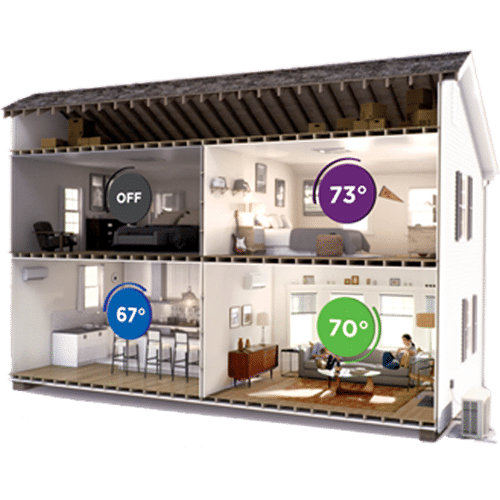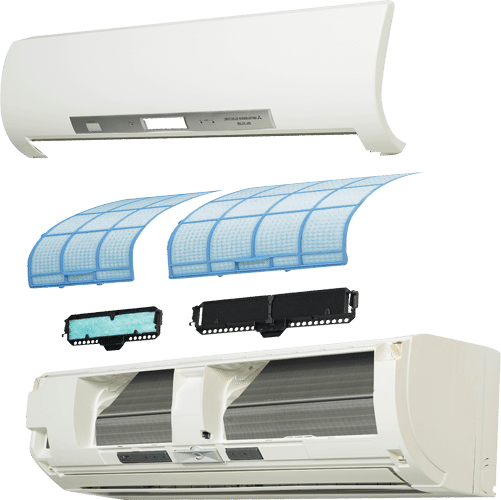Top 6 Ducted AC Maintenance Tips to Try Now
If you have a ducted air conditioner, keeping it in good condition is important. Regular maintenance can help you avoid expensive repairs and maximize your energy efficiency, so you stay comfortable throughout the summer. Here are our top 6 ducted AC maintenance tips to try and when to call N.E.T.R., Inc. for professional upkeep.

How Zoning Works with Ducted Air Conditioning
If you know anything about air handlers, you may have heard of the term “zoning.” This is a strategic way to set up your air conditioner to cool different areas of your home independently of one another. While zoning is easiest for ductless mini-splits, a ducted AC system can also be divided into zones for greater control and comfort. Here’s what to know.

Ductless vs. Ducted Air Handlers: Which AC Is Right for You?
Are you interested in switching from central air conditioning to more energy-efficient cooling? The two most popular options are ductless and ducted air handlers. These offer superior comfort while using significantly less energy than traditional systems, so you can cut back your summer energy bills without compromise. We compare these two systems below and how to choose between them.

7 Benefits of Inverters
Are you looking for a more efficient way to heat and cool your home? Inverter-based HVAC systems can help you reduce energy use and maintain your comfort by adjusting output to demand. Below, we cover how these systems work, the benefits of inverters, and why this type of system can be a valuable investment for your space.

5 Ways Whole Home Electrification Can Reduce Your Carbon Footprint
Whole-home electrification is an effective way to reduce your carbon footprint and adopt a more sustainable lifestyle. This eliminates the need for fossil fuel-powered systems, which reduces overall emissions and saves money on energy bills. Keep reading to discover the benefits of electrifying your home and how N.E.T.R., Inc. can help you make the change.

Air Conditioning for Vacation Homes: Tips & Tricks
Keeping your vacation home cool is important for a relaxing stay. Whether you visit seasonally or rent your space out to tourists exploring the Boston area, the right air conditioning system can make a big difference. We cover tips and tricks for cooling your vacation home below, plus how N.E.T.R., Inc. can help you choose the right AC to fit your needs.

How to Choose the Right HVAC Filter for Your System
The HVAC filter you choose plays a significant role in not only the quality of your air, but also how hard your system has to work to push air through the filter. It’s important to strike a balance between good filtration and avoiding excess wear on your system.
Below, learn about the different types of filters and how you can choose the right one to fit your specific needs.

January Brings 20% Higher Gas Prices to the East Coast
If you’ve been keeping an eye on the weather, you probably already know that this winter is predicted to be colder than average. But Mass residents have more to worry about than just icy roads or shoveling snow—the drop in temps directly correlates with a sharp increase in natural gas prices, which promises to put strain on post-Christmas wallets into the spring. Here’s what to know, how to plan ahead, and how N.E.T.R., Inc. can help.

What to Know About Electrical Safety and Backup Power
Your home’s electrical system wears a lot of hats, from keeping you safe and warm to making it convenient to get the news or listen to music. But it’s also inherently dangerous, and not knowing what safety tips to follow or how to navigate outages can be challenging. We go over some key info about electrical safety, backup power, and working with a qualified electrician below.

Residential Electric 101
Your home’s electrical system is like a heart, powering everything from your lights to your refrigerator, your HVAC system, and more. Having a basic understanding of how this system works can help you steer clear of problems and keep critical components in good condition.
Here’s what to know about household electrical systems and when you should reach out to a qualified Boston electrician for support.



